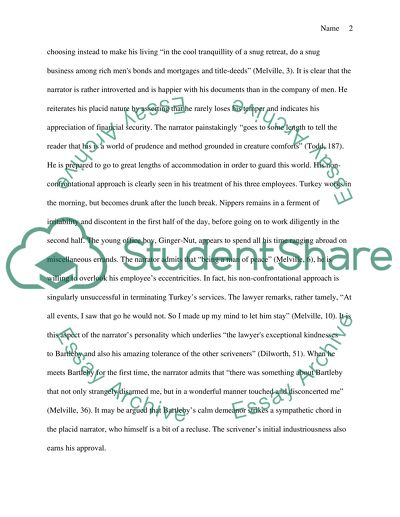Cite this document
(“Argumentive Essay of Bartleby the Scrivener answering explaining the”, n.d.)
Retrieved from https://studentshare.org/literature/1494563-argumentive-essay-of-bartleby-the-scrivener
Retrieved from https://studentshare.org/literature/1494563-argumentive-essay-of-bartleby-the-scrivener
(Argumentive Essay of Bartleby the Scrivener Answering Explaining the)
https://studentshare.org/literature/1494563-argumentive-essay-of-bartleby-the-scrivener.
https://studentshare.org/literature/1494563-argumentive-essay-of-bartleby-the-scrivener.
“Argumentive Essay of Bartleby the Scrivener Answering Explaining the”, n.d. https://studentshare.org/literature/1494563-argumentive-essay-of-bartleby-the-scrivener.


